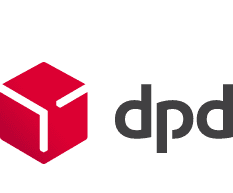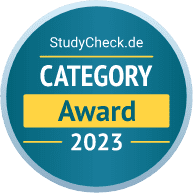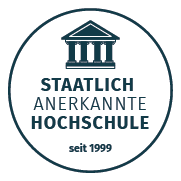Vorteile für Dein duales Studium an der IU
15.000+ Praxispartner
Anders als viele andere Hochschulen bringen wir Studierende und Unternehmen aufeinander abgestimmt zusammen – und das mit Erfolg: 2 von 3 Studierenden werden nach dem Abschluss von ihrem Praxispartner übernommen.
Verzahnung von Theorie & Praxis
Studium, Arbeit und Freizeit – bei uns bringst Du alles unter einen Hut: dank regelmäßigem Wechsel zwischen Theorie & Praxis. Du wendest das Erlernte immer direkt in den Praxisphasen an – dadurch verstehst Du Kursinhalte deutlich schneller und leichter.
Privates duales Studium für 0€
Privat studieren klingt teuer? An der IU zahlst Du 0 € – denn Dein Praxispartner übernimmt Deine Studiengebühren.
Kein Numerus Clausus
Bei uns zählt das persönliche Gespräch, in dem wir gemeinsam Deine Talente und Stärken herausfinden.
Unterricht in kleinen Gruppen
Überfüllte Hörsäle? Nicht bei uns. Unsere Dozenten unterrichten in kleinen Gruppen.
Staatlich anerkannt
Wir sind stolz, regelmäßig Bestnoten bei Beurteilungen und Auszeichnungen zu erhalten. Alle unsere laufenden Studiengänge sind staatlich anerkannt und qualifiziert.
Dual studieren an der IU
Studieren, aber auch im Job was bewegen. Du willst beides? Mit unserem dualen Studium wechselst Du regelmäßig zwischen Theorie-Veranstaltungen an der IU und Praxisphasen im Unternehmen – und bereitest Dich so perfekt auf Deinen Berufseinstieg vor:
Die Theorie findet je nach Studiengang und Studienort in einem unserer beiden Studienmodelle statt: Duales Studium (mit Lehrveranstaltungen am Campus) oder Duales myStudium (mit freiwilligen Lehrveranstaltungen am Campus oder virtuell im Livestream).
Die Praxis absolvierst Du in einem Unternehmen Deiner Wahl. Bei der Praxispartnersuche für Dein duales Studium bieten wir Dir umfangreiche Unterstützung.
Ob Soziales, Technik, BWL, Marketing, Tourismus oder Personal: Bei uns kannst Du in ganz unterschiedlichen Bereichen mit einem dualen Studium durchstarten – und das deutschlandweit mit über 35 Studienorten oder ortsunabhängig am virtuellen Campus. Bildung auf Deine Art – die IU macht’s möglich!
Erreichbar von Montag - Freitag von 8 - 19 Uhr
Lerne unsere dualen Studiengänge kennen
Nach Deinem dualen Bachelor Studium hast Du nicht nur mindestens 3 Jahre Berufserfahrung, sondern auch einen staatlich anerkannten Hochschulabschluss. Je nach Fachrichtung schließt Du Dein duales Studium mit einem Bachelor of Arts (B.A.), Bachelor of Science (B.Sc.) oder Bachelor of Engineering (B.Eng.) ab. Und in welchem Bereich willst Du durchstarten?





Tourismus & Hospitality


Pädagogik & Psychologie
Du suchst noch den passenden Studiengang? Mach den Test!

Du bist noch nicht sicher, welches Fach für Dich in Frage kommt? Oder Du interessierst Dich für einen bestimmten Studiengang und willst testen, ob er zu Dir passt? Unser Studyfinder hilft Dir dabei, Antworten zu finden.
Beantworte kostenlos und mit nur wenigen Klicks ein paar Fragen
Auf Basis Deiner Interessen und Stärken, zeigen wir Dir, welche Studienfächer für Dich infrage kommen.
Studiere dual vor Ort - oder am virtuellen Campus
Mit über 35 Studienorten sind wir in ganz Deutschland zu finden. Du hast trotzdem keinen passenden Studienort für ein duales Studium in deiner Nähe? Mit unserem virtuellen Campus kannst Du studieren, von wo Du willst.
*Vorbehaltlich der staatlichen Anerkennung der Studiengänge und der Genehmigung der Niederlassung in Chemnitz durch den Freistaat Sachsen. Wir erwarten die Genehmigungen der Ministerien spätestens zum Studienstart. Bisher wurden alle Programme der IU Internationale Hochschule erfolgreich und pünktlich akkreditiert und genehmigt.
Studiere dual an der IU
Studieren und gleichzeitig arbeiten? Im dualen Studium an der IU kannst Du beides! Du wechselst regelmäßig zwischen Theorie am Campus und Praxis im Unternehmen. So bereitest Du Dich perfekt auf den Berufseinstieg vor und profitierst von vielen weiteren Vorteilen:
Bei der Praxispartnersuche unterstützen wir Dich
Studiere bei uns deutschlandweit an einem von über 35 Studienorten
Du kannst auch ortsunabhängig sowie flexibel am virtuellen Campus starten
Hol Dir Deine kostenlose Studienbroschüre
Das sagen unsere Studierenden
Wie läuft die Bewerbung für ein duales Studium an unserer Hochschule ab? Und wie geht es danach mit der Praxispartnersuche weiter? Antworten auf diese Fragen bekommst Du hier.
Eine Auswahl unserer Praxispartner









Die meistgestellten Fragen zum dualen Studium an der IU
Hier findest Du die kompletten FAQ zum dualen Studium.








